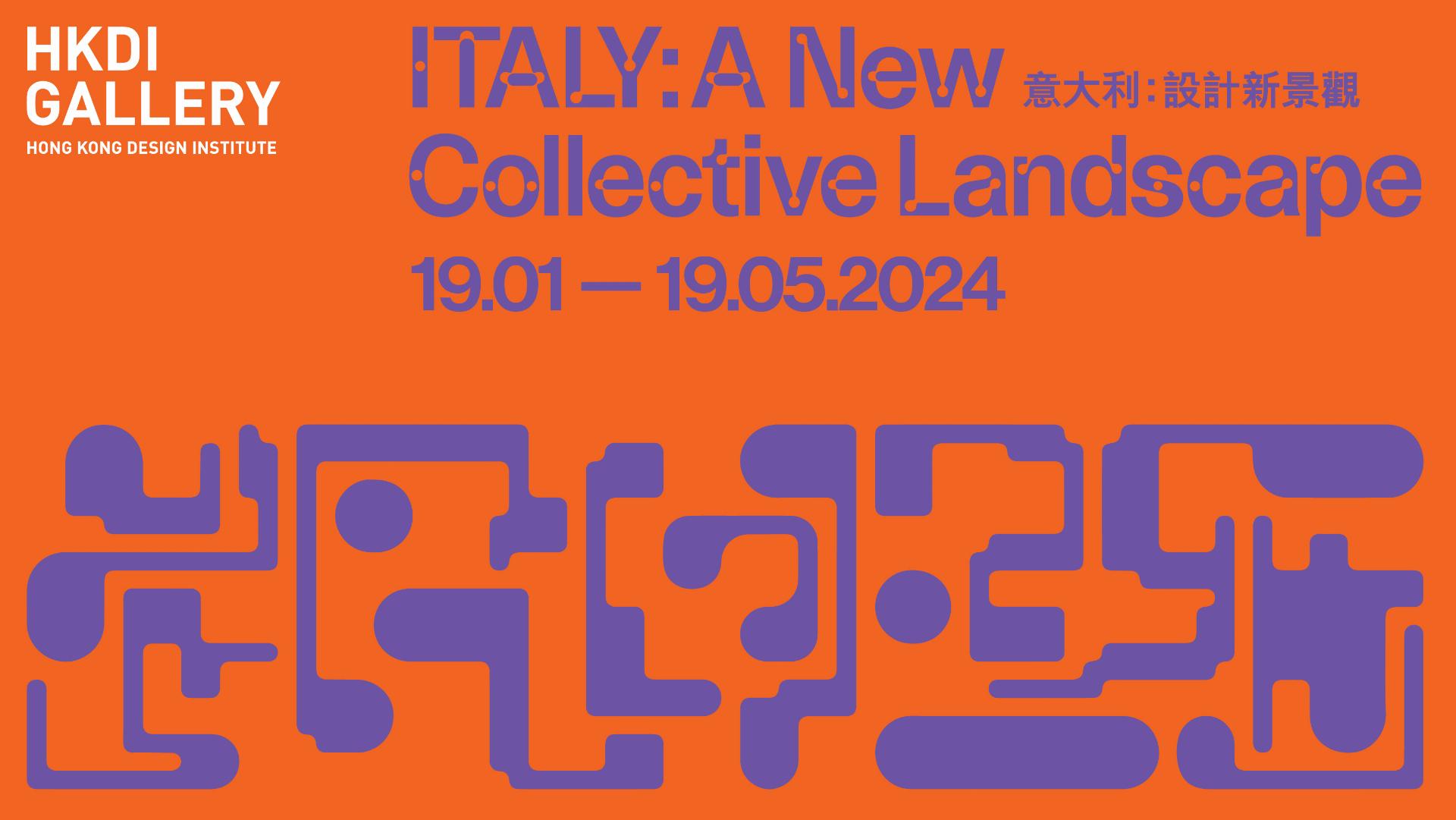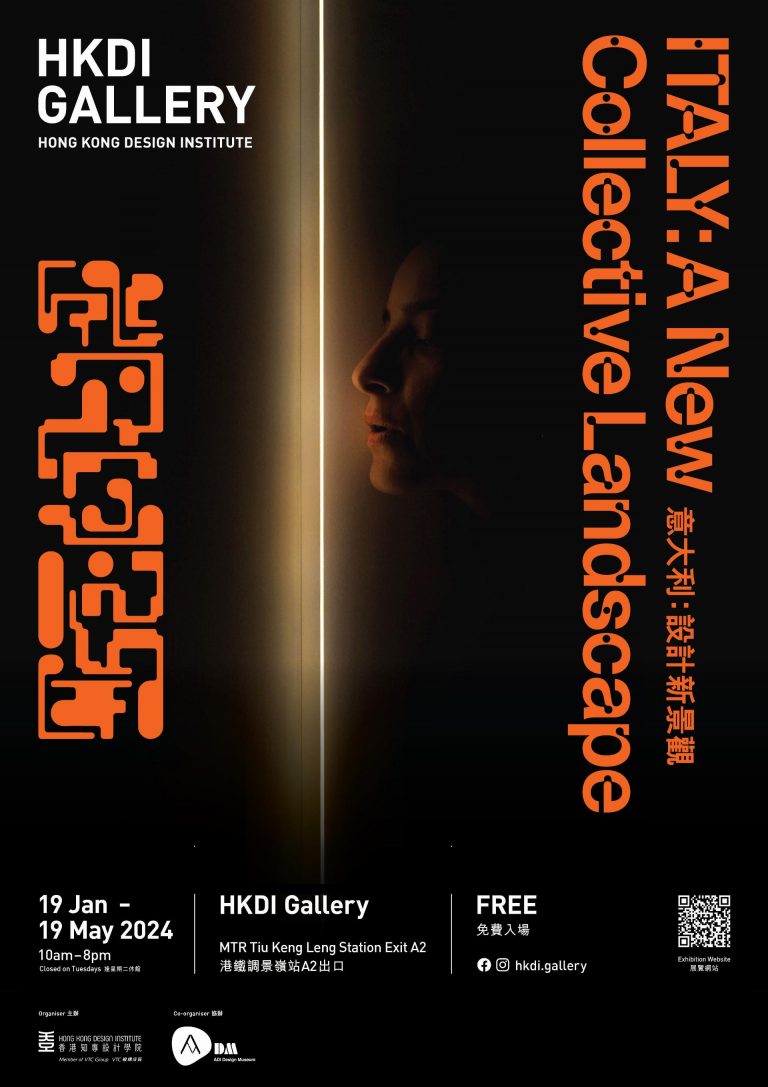Date: 19 January – 19 May 2024
Venue: HKDI Gallery, Hong Kong Design Institute, 3 King Ling Road, Tiu Keng Leng, Tseung Kwan O, Hong Kong
Time: 10am – 8pm
Click here for more information
***
ITALY: A New Collective Landscape is an overview of one hundred young Italian designers under-35 from which the overall image emerges as a plural and feasible model of society, where the notion of commoning draws on a myriad of new negotiations. Virtuous ways of thinking, being and producing, committed to giving back more than they take. Considering ourselves as part of the web of life, in which human and non-human, geological, biological and technological agents are interconnected, can design culture approach the notion of radical interdependence as a new field of action? Can design practice come up with concrete proposals to become a tool for social, ecological and political transition, producing workable visions aimed at designing kinder relationships? The configuration of the exhibition highlights congruences with respect to three design virtues – systemic, relational and regenerative – knowing that this landscape could be reconfigured in a myriad of new readings and associations.
In Systemic Design, we look at the system of relationships that a project sets in motion for the resources it needs, for the outcomes and outputs it generates, and for the promotion of inclusive, sustainable and circular development models involving the supply chain and the use of resources.
In Relational Design, designing is understood as a social practice and a tool for fostering community and interdependence, both human and non-human. Here the exhibition design includes spatial areas for interaction (Play), research (Read) and entertainment (Watch) where the idea of collectivity is extended to the active involvement of the public, transforming the exhibition into an overall, inclusive and dynamic landscape by bypassing the canonical and individual enjoyment of content.
The third quality, under the term Regenerative Design and meant to be the upshot of the first two, reconsiders how the built environment and production processes could have a positive and regenerative impact, advancing proposals that integrate the needs of society with the integrity of nature. We would like to ensure that this position may become political and tentacular, and flow into policy making without which it will remain no more than humanistic theory.






